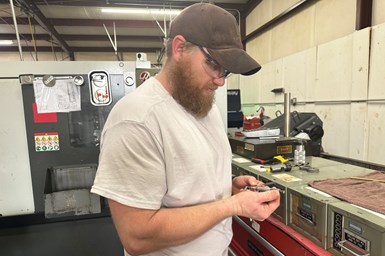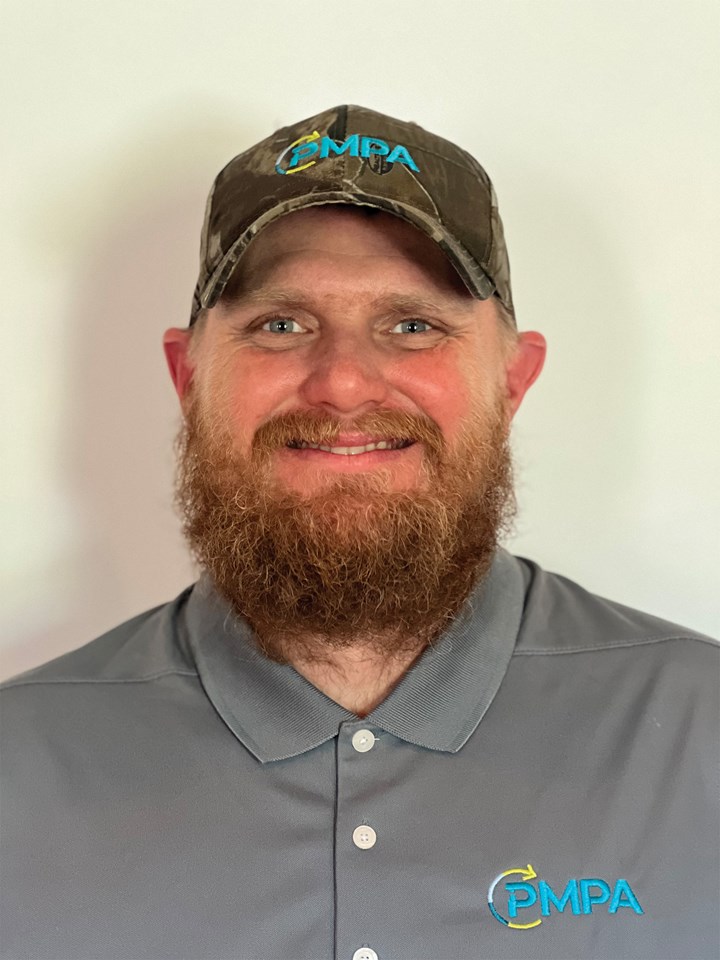My Journey to an Accidental Career that Became My Passion
“Machining was not the career I chose; it chose me.”
I recently stepped into the director of technical services role at PMPA. Working for PMPA is a fun and exciting journey. I get to meet lots of great people. I get to see the best manufacturing facilities in the world. My favorite part is helping our members solve their problems. Moving into the director position is just the next step in my transition into Miles Free’s role with PMPA, so I thought it would be good for me to give you a brief history of how I got where I am.
I started my college career as a dual chemistry and biology major while working in my family’s shop. While attending college, I noticed that I had a passion for two things: machining and business. I spent my spare time studying both. It occurred to me that I should be studying my passion, rather than just trying to get a rubber stamp on a piece of paper. So, after two years I switched to a business degree and earned a degree in finance-economics with a minor in accounting, all while working at my family’s machine shop.
After graduating college, I started moving more into the management side of the business. I had a professor pushing me to get my MBA, so I re-enrolled in college. This time, all my classes were at night, which allowed me to work full time in the shop. While I was an undergrad, machining was a fun hobby, but now it was becoming a career — being in a small family shop you had to get your hands in a little bit of everything.
While studying for my MBA, I started working on my “masters in machining” at the school of hard knocks and real-world teaching by my grandfather. My grandfather had worked on Brown and Sharpes for several companies in the Chicago area. After the war, he worked primarily at Teletype. The teletype machine was a mechanical marvel full of screw machine parts.
My grandfather got to see about everything you could do with a Brown and Sharpe while he was there. When it came to teaching, my grandfather demanded perfection. When I would grind a cutoff tool, he would send me back to the grinder if it did not have a mirror finish. I almost wore a whole blade down the first time before he would accept it. I spent time learning flat die thread rollers, the burnishing machine and various other mechanical equipment.
After earning my MBA, my grandfather and grandmother were getting older and planning to retire. My dad and I decided to take over the business. I had spent seven years on Brown and Sharpes at this point, but my skill could not compare to my grandfather’s 60-plus years of experience. I had to find a way to make the business my own. I challenged myself to find a way to produce the parts as, or more, efficiently while maintaining quality. This is where PMPA and Swiss machines enter the story.
For years I had collected old NSMPA manuals (NSMPA became PMPA in the mid 1990s). The manuals were the holy grail of information in our industry. I called and talked with Miles at PMPA, and my dad and I decided to join the organization. My first Management Update (MU) conference was in San Antonio, Texas, which was special to me because I met so many of the people who ended up mentoring me. The connections I made at that first MU have carried my family’s business to this day; they guided us into Swiss machines. It totally changed our business dynamic. The shop still runs Brown and Sharpe screw machines, but only when it makes sense.
I fell in love with the parallel processing of Swiss just like screw machines — Swiss just takes a different mindset. I also learned mill-turn, CNC lathes and spent a little bit of time on CNC mills, in addition to mastering the implementation of information technology throughout the business.
Machining was not the career I chose, it chose me. With my new position at PMPA, I am honored to be able to continue working with PMPA members and I’m proud to be a part of the organization’s continuous improvement.
PMPA is a fantastic organization that has been helping small manufacturers become world class for over 90 years. I plan to be a part of the great tradition of providing high-value, relevant and useful content that will help our members adapt and thrive. I like to say that I work in the solutions department, and I look forward to being your problem solver.
About the Author
David Wynn
David Wynn, MBA, is the PMPA director of technical services. He has over 20 years of experience in the areas of manufacturing, quality, ownership, IT and economics. Email: dwynn@pmpa.org — Website: pmpa.org.
Related Content
Cold-Drawn Steel Barstock: How It Is Manufactured, Benefits to Your Shop
Understanding the benefits provided by cold-drawn steel barstock can help you optimize the work you quote by maximizing benefits to your manufacturing process and customer.
Read MoreMachining Unleaded Materials — Reliability is Possible
Leaded steel is no longer produced in the United States. How do shops approach unleaded brass and steel machining?
Read MoreCraftsman Cribsheet No. 121: ISO Turning — What Does it All Mean?
How to make sense of all those different letters and numbers in ISO turning inserts.
Read MoreCraftsman Cribsheet No. 126: AISI System of Identification
Source: PMPA Prior to the Society of Automotive Engineers taking responsibility for Steel Grade nomenclature in the United States (1995), the American Iron and Steel Institute determined U.S. standard steel grades in collaboration with SAE.
Read MoreRead Next
5 Aspects of PMTS I Appreciate
The three-day edition of the 2025 Precision Machining Technology Show kicks off at the start of April. I’ll be there, and here are some reasons why.
Read MoreA Tooling Workshop Worth a Visit
Marubeni Citizen-Cincom’s tooling and accessory workshop offers a chance to learn more about ancillary devices that can boost machining efficiency and capability.
Read MoreSeeing Automated Workpiece Measurement in Real Time
User-friendly inspection software for CNC machining centers was shown at IMTS 2024 monitoring measurements between and after machining while performing SPC based on recorded measurement values.
Read More












.jpg;maxWidth=300;quality=90)










